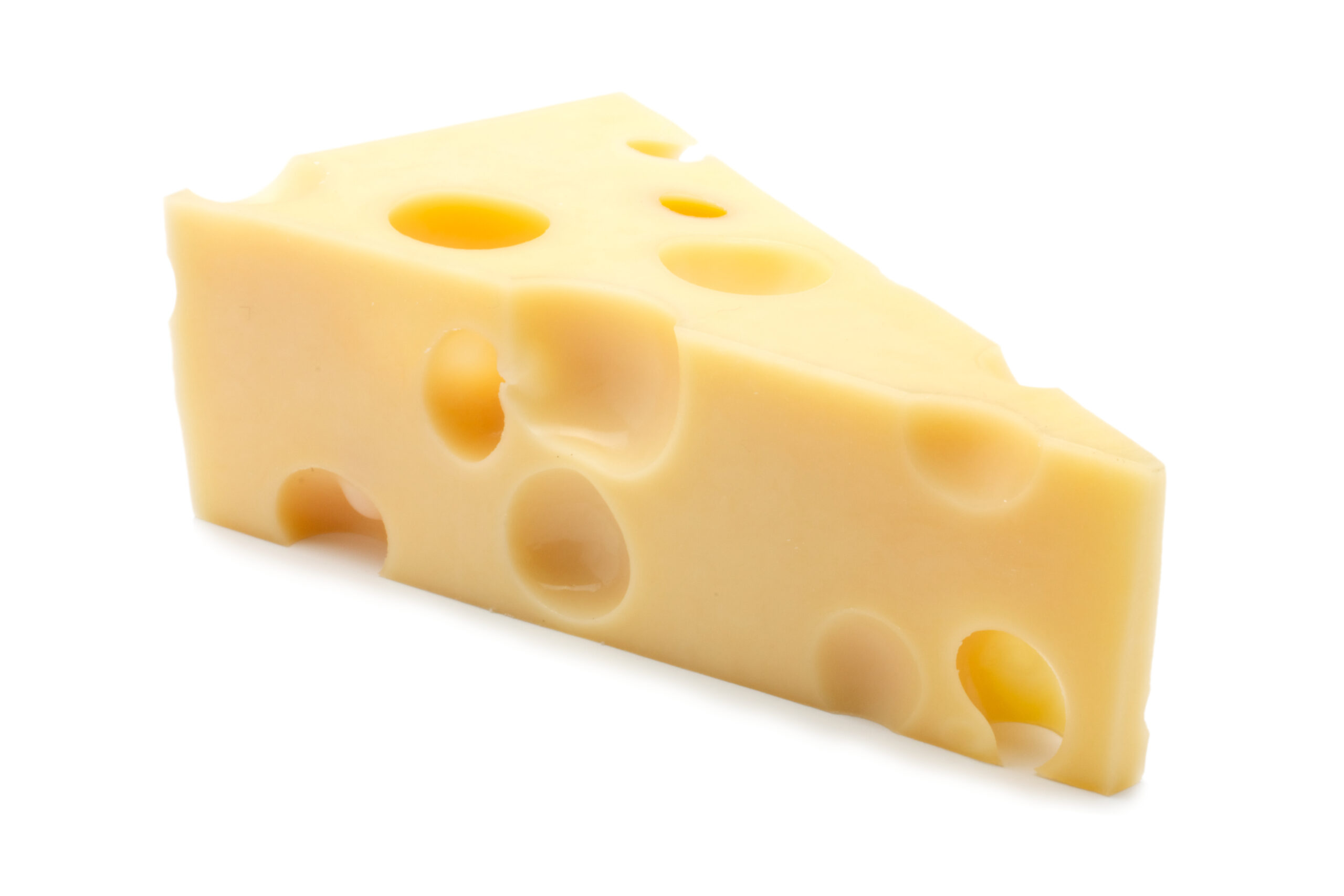Mature cheese is quite expensive compared with young cheese. It would be handy if young cheese automatically matured if you let it ripen at home. Can you do that? ‘Yes,’ says Kasper Hettinga, associate professor in Dairy Science at the Food Quality and Design chair group. ‘The basis of every cheese is the same, from Roquefort to Gouda: milk, rennet and lactic acid bacteria, which convert lactose into lactic acid. The specific combination of bacteria species is the main determinant of the type of cheese.’
That basic mix gets pressed and stored in brine for a few days, which halts the growth of bacteria. The ripening process then continues on the shelf. ‘Bacteria gradually break down fat and protein in the cheese, releasing odour and taste compounds,’ says Hettinga. ‘That’s why mature cheese has a stronger flavour. The breakdown of protein also causes it to lose the rubbery structure typical of young cheese. The cheese dries out and that is why mature cheese contains more fat and salt per kilo. The plus sign on cheese doesn’t refer to the absolute quantity of fat, but the fat content per quantity of dry matter. So a mature 48+ cheese is fattier than a young 48+ cheese.’
There are legal standards for the ripening times for Dutch cheese: four weeks for young cheese, eight weeks for medium cheese, four months for mature cheese, seven months for extra-mature, and 10 months for vintage cheese. Hettinga: ‘Some manufacturers speed up the ripening process – to make Old Amsterdam, for instance. But then they are not allowed to call it mature cheese.’ Many cheeses ripen at between 12 and 16 degrees Celsius. ‘Because the sugars have already been broken down, cheese won’t go bad because of bacteria,’ says Hettinga. ‘But mould can grow on lactic acid. So use a whole cheese, because the outer coating contains an antifungal product called natamycin. You can ripen Camembert too. But soft cheeses also contain more fluid and moulds that break down the proteins, so they become liquid faster.’ Conclusion: You can ripen cheese yourself, but you must use a whole cheese.
Because sugars have already been broken down, cheese doesn’t go bad because of bacteria
Kasper Hettinga, associate professor in Dairy Science

 Photo: Shutterstock
Photo: Shutterstock 

